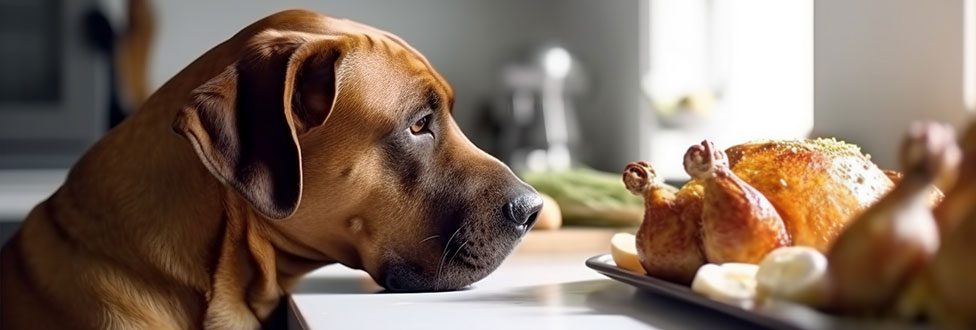5 Thanksgiving Foods Your Dog Should Avoid
Keep your pup happy and healthy this holiday season
Thanksgiving is all about gratitude, good food, and great company – including our pets! While it’s tempting to slip your dog a little taste from your plate, some holiday favorites can actually cause serious harm.
Before your pup partakes in Thanksgiving the feast, here are five foods to keep off their menu:
-
- Turkey Bones
They might seem like a classic treat, but turkey bones can easily splinter and get lodged in your dog’s throat or digestive tract. This can lead to choking, internal injuries, or even surgery. So skip the bones and opt for a dog-safe chew instead. - Fat Trimmings
Rich, fatty foods are tough for dogs to digest and can trigger pancreatitis, a painful and potentially life-threatening condition. Watch for signs like vomiting, abdominal pain, or lethargy, and keep the greasy leftovers far from your pup’s bowl. - Raw Dough and Cake Batter
Unbaked dough can potentially rise inside your dog’s stomach, causing bloating and severe discomfort. And if the batter contains raw eggs, there’s also a risk of salmonella. Let your pup “help” in the kitchen by supervising, not taste-testing. - Nutmeg
This seasonal spice adds warmth to pies and lattes, but it’s toxic to dogs. Even small amounts can cause tremors, seizures, and vomiting. When baking, keep spiced treats safely out of reach.
- Raisins and Grapes
Even tiny amounts of raisins or grapes can cause kidney failure in dogs. Since the reason for their toxicity is still unknown, it’s safest to steer clear altogether.
- Turkey Bones
There are safer ways to include your dog in the celebration!
The best way for your pet to partake in the holiday cheer? Stick with traditional treats that are safe for dogs and cats! Food puzzles and interactive toys like a Kong filled with plain yogurt, peanut butter and 100% real pumpkin are a great way to keep your canine entertained and feeling satisfied all holiday long.
Bonus tip: Keep your vet’s emergency number handy. Should your pet become ill, contact your pet’s veterinarian or the local animal hospital’s number! A quick call to either of them can give you life-saving advice or even help you avoid a trip to the ER.

